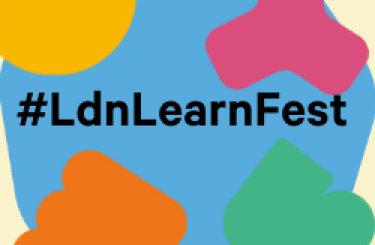Related



A blog written by Aasha Farah, Funding Manager at City Bridge Trust
At City Bridge Trust (CBT), we recognise that equity is a crucial issue for the funding sector and as an organisation are taking a strong focus to ensure we actively work towards embedding equity into our grant-making.
For us at CBT, equality in funding means equality of opportunity, whereas equitable funding means identifying and acknowledging the barriers which prevent funding equality and taking action to remedy this. For example, tailoring support dependent on the type and severity of barriers faced or targeting support to specific communities.
Last November we set up a Diversity, Equity and Inclusion working group to develop and support the implementation of best DEI practice. We had already undertaken some strategic planning activity to create a Race Action Plan which then led to the development of our Diversity, Equity and Inclusion Action Plan to hold ourselves accountable on how we embed equity within our funding practises. We have outlined our actions, who will lead them and a timeframe we are working towards. As well as the working group, we have committed to being involved with networks for grant-making charities that have a focus on equity. For instance, we were one of the founding members of the Funders Alliance for Race Equality and have undertaken a Race Equality Audit, reviewing a sample of our grants to give us a picture of how our funding reaches Black Asian and Minority-led groups. This research has aided us as funders in identifying our next steps in reviewing and analysing our funding processes. We are also members of the DEI Coalition.
To achieve an equitable grant-making sector, it is important that the voices, expertise and experience within the field are diverse. Data published by the Association of Charitable Foundations has revealed that the Trusts and Foundation sector lacks diverse voices within positions of power. In 2020, City Bridge Trust committed to partnering up with the 2027 Leadership programme. The programme is designed to place working-class individuals within decision making roles within the sector. As a 2027 Associate myself, I believe that it has highlighted how valuable lived experiences are in our work. Having first-hand experience of social issues and injustices better informs our efforts to support the communities in London we are committed to serve as an organisation. To help redress the issue of the lack of equity in the sector, one of the objectives in our DEI Action Plan is a commitment to re-evaluate our recruitment practises. Having a more equitable recruitment process will support having a diverse staff team in both demographics and experience.
As an organisation that aims to address inequalities faced by London, we are aware that it is especially important to dedicate time and resources to making our funding activities more equitable. Applying an equity lens throughout the funding process ensures that we are addressing the structural inequalities of gender, race, disability, sexual orientation and class and their intersectionality. For example, adopting and communicating funding principles which recognise the value of user-led organisations is an action that we are working towards within our DEI action plan.
We are at the beginning of our DEI journey, and I believe that central to our learning is the work of the London Community Response (LCR). The London Community Response, led by London Funders, is a collaboration between 67 funders – formed as it emerged that the pandemic was intensifying pre-existing inequalities within London. The funding programme put equity at the core of its response. CBT, in collaboration with 20 funders which all contributed to a restricted fund, distributed about half of the LCR grants and in waves three to five more than 90% of them went to user-led groups.
Thanks to LCR, we learnt that working with and supporting equity groups such as LGBT+ Consortium, Ubele Initiative, Women’s Resource Centre, and Inclusion London helped us to give marginalised groups access to funding they had historically been excluded from. Learning from resources such as the report by The Social Investment Consultancy - which looked into the approach on equity and inclusion in the London Community Response - equips us as funders to work on creating more effective grant-making that tackles structural inequalities.
I believe that the ongoing work we are doing highlighted within our DEI action plan enables us to understand where we are as an organisation and to continue to take a pro-active stance in our journey to embedding equity within our grant-making. Visit our website for the full CBT DEI statement.


